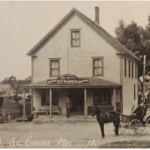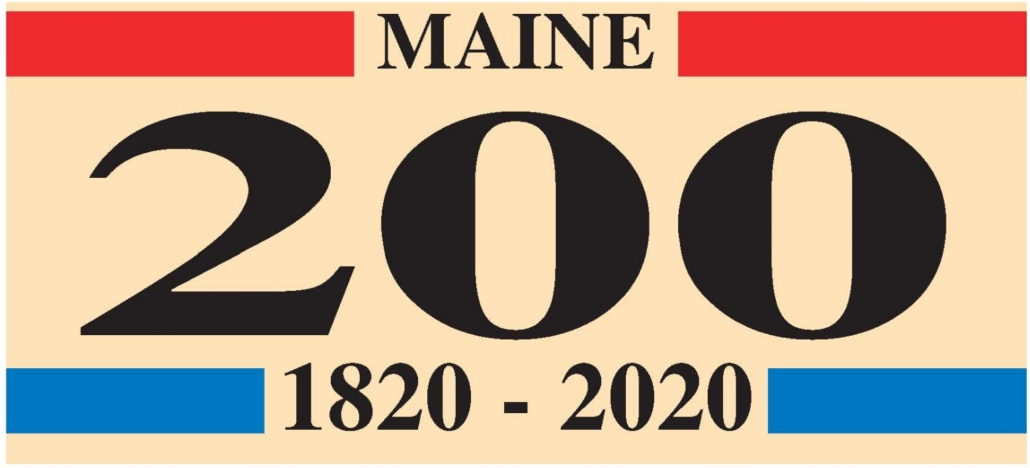China selectboard candidates critical of current administration’s procedures and decisions
by Mary Grow
Three candidates for two positions on the China Selectboard and a small audience had a lively discussion of town affairs at an Oct. 20 candidates’ forum in China Village.
Wayne Chadwick and Todd Tolhurst, both running for their first terms on the board, were critical of some of the current administration’s procedures and decisions. Incumbent Irene Belanger’s remarks were milder and tended to provide information based on her tenure on the board.
Chadwick and Tolhurst both called for governmental and fiscal restraint, with different emphases.
Tolhurst was most critical, calling the Selectboard “a board which rubber-stamps the actions of the town manager” and saying selectmen should do more research before acting on Manager Dennis Heath’s ideas and “make it clear they’re the drivers, not the town manager.”
Later, however, he added that although the town manager should follow selectmen’s instructions, the manager is the professional and the selectmen amateurs who should respect his experience-based advice.
Tolhurst referred to what he sees as “an increasing gap” between administration priorities and residents’, citing the two proposals to buy lakefront property for a public beach that voters have rejected by generous margins.
He objected vigorously to what he called “the shameful treatment of the town’s volunteer fire departments by the selectmen and town manager” and their “disobedience of the voters’ will” in delaying payment of the $40,000 approved at the town business meeting for emergency services members’ stipends.
Three candidates for selectboard
IRENE BELANGER has lived in China since 1969 and has volunteered in many capacities since she started as a Cub Scout den mother. A former planning board chairman and current selectboard member, she also serves on multi-town committees dealing with issues including Firstpark and the Coastal Resources trash disposal group. She seeks re-election to continue keeping China a state-wide example for town services; the transfer station, Thurston Park and the school forest have attracted favorable attention.
WAYNE CHADWICK was born in Palermo and has been a China resident since 1985. He is an independent businessman who has served on the town budget committee and been in the audience at most selectmen’s meetings. One of his goals is to find ways to bring more residents to board, committee and especially town meetings. He supports continued efforts to improve China Lake’s water quality for environmental and economic benefits.
TODD TOLHURST has lived in China for 12 years. He works for “a small company you never heard of” that runs the state website maine.gov and for seven years has been president of “a small civil rights organization,” Gun Owners of Maine. Aside from testifying and lobbying for the organization, he claims “pretty limited” political experience, “which I would view as probably a positive.” If he is elected a selectman, “the important thing is to represent the people,” and he will not forget that “every dollar the town spends is taken out of the pockets of residents.”
Asked later if they support China’s volunteer fire and rescue organizations, all three candidates said yes, emphatically.
Chadwick said in his initial presentation, “I think we’ve been growing town government too much.” A particular objection was to the selectmen’s decision to buy an excavator, on the recommendation of Public Works Manager Shawn Reed. Admitting he might appear biased because he is a contractor, Chadwick argued that the town hasn’t enough work to justify the purchase.
Tolhurst said he, too, would have liked figures to support the need, and added that one excavator might not be the right size for all needed work.
Chadwick questioned the decision to buy another portable building. Granted, he said, Heath, with selectmen’s approval, bought the building for a dollar; but setup and maintenance costs must be added, and he questions the need for more space.
Belanger defended the purchase. Heath has in mind office space for China’s part-time policemen; Belanger added potential use as an emergency shelter, not only for a state-wide disaster like the 1998 ice storm, but also in case, for example, a house fire displaced a local family.
Former Selectman Neil Farrington asked Tolhurst and Chadwick for specific plans to curtail expenses – were they suggesting cuts in staff or services?
Tolhurst pointed out that the school uses most of the annul town budget and is outside selectmen’s control. Selectmen “need to be skeptical” of all proposals for more buildings, more electronic signs and other discretionary spending before they consider staff cuts, though he said those, too, could be possible.
Chadwick is willing to study – he emphasized study, not act hastily – whether China would be better off outside Regional School Unit (RSU) #18.
Belanger, who attends many RSU board meetings, pointed out that children with special needs are an expensive piece of the education budget, and Farrington, one of China’s members of the RSU board, added that China’s high-school choice policy adds to tuition costs. High-school choice also brings families to China, he said; he endorses it.
When the discussion circled back to more general governmental topics, audience member Tom Michaud objected to what he calls selectboard “indecisiveness” that leads to long delays in decision-making. Chadwick thinks part of the reason is “political posturing.” Tolhurst would try to avoid “back-room maneuvers,” but, he said, information-gathering is a legitimate reason to delay action.
There was agreement that selectmen’s discussions and decisions had to be public; private lobbying would be at least unethical, if not illegal. Belanger said in her experience, between-meeting emails have been only factual.
Michaud thinks the current board holds too many executive sessions, and Tolhurst agreed that the executive-session privilege “seems to be overused.” Belanger said Heath usually consults the town attorney before designating an item for private discussion.
A related comment from Michaud and Chadwick was that selectmen discuss documents that audience members do not see, leaving the audience with limited information.
China voters will decide on Nov. 5 which two candidates will serve on the Board of Selectmen. Polls are open from 7 a.m. to 8 p.m. in the portable building behind the town office – another $1 plus setup and maintenance purchase that, Belanger pointed out, makes voting preparations more convenient for town office staff.
Responsible journalism is hard work!
It is also expensive!
If you enjoy reading The Town Line and the good news we bring you each week, would you consider a donation to help us continue the work we’re doing?
The Town Line is a 501(c)(3) nonprofit private foundation, and all donations are tax deductible under the Internal Revenue Service code.
To help, please visit our online donation page or mail a check payable to The Town Line, PO Box 89, South China, ME 04358. Your contribution is appreciated!





